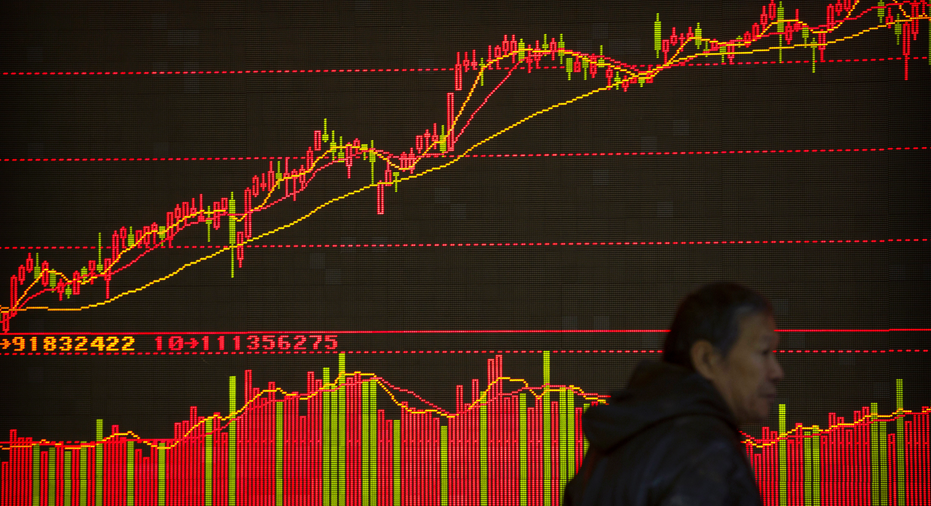Asian stocks fall after Wall Street losses

BEIJING – Asian stock markets declined Thursday after U.S. tech stocks fell and China reported stronger manufacturing as investors looked ahead to a key OPEC meeting.
KEEPING SCORE: The Shanghai Composite Index shed 0.2 percent to 3,330.04 and Tokyo's Nikkei 225 retreated 0.1 percent to 22,570.42. Hong Kong's Hang Seng fell 1 percent to 29,332.42 and Seoul's Kospi lost 0.6 percent to 2,497.35. Sydney's S&P-ASX 200 declined 0.7 percent to 5,965.90. Benchmarks in Taiwan, Singapore and Jakarta also retreated, while New Zealand and Malaysia gained.
WALL STREET: A steep slide in big technology companies pulled major U.S. stock indexes mostly lower, offsetting strength in banks and health care and erasing some of the gains the market made a day earlier. The tech-heavy Nasdaq composite, which is the best-performing index this year, had its biggest single-day drop since August as investors cashed in some of their winnings and bid up shares in health care companies and retailers. The Standard & Poor's 500 index lost just under 1 point to 2,626.07 and the Dow Jones industrial average gained 0.4 percent to 23,940.68. The Nasdaq lost 1.3 percent to 6,824.39.
CHINA MANUFACTURING: A monthly survey showed Chinese manufacturing activity improved in November, adding to signs of a pickup in global and domestic demand. The China Federation of Logistics and Purchasing said its purchasing managers' index rose to 52.4 from October's 51.6 on a 100-point scale on which numbers above 50 show activity accelerating. Components of the survey that measure imports, exports and new orders all improved, while the indicator for employment weakened. "The breakdown shows a broad-based pickup in demand," said Julian Evans-Pritchard of Capital Economics in a report.
OPEC: With crude prices at two-year highs, OPEC and allied oil producing-nations appear ready to agree to extend output cuts at a meeting Thursday after Iraq's energy minister said there was broad agreement for such a move. Prices are up almost 20 percent over a year ago. And the bets have been that the Organization of the Petroleum Exporting Countries and their non-OPEC partners will try to keep supply tight by prolonging the daily 1.8 million barrel output reductions agreed to a year ago. Some market watchers say quotas agreed in November 2016 will be stretched into 2018, and the comments by Iraq's Jabbar Ali Hussein Al-Luiebi strengthened such expectations.
ANALYST'S TAKE: The decline in U.S. tech shares, driven by potential tax changes, is likely to weigh on Asian markets, said Jingyi Pan of IG in a report. "The better than expected Chinese November PMI figures were seen providing little to support prices given a market that largely anticipates steady expansionary manufacturing figures," said Pan. "Oil will take center stage with today's OPEC meeting. While the realization of the technical committee's recommendation may ensue, reactions could still be a wild card."
ENERGY: Benchmark U.S. crude rose 6 cents to $57.36 per barrel in electronic trading on the New York Mercantile Exchange. The contract fell 69 cents on Wednesday to $57.30. Brent crude, used to price international oils, gained 12 cents to $62.65 in London. It lost 71 cents the previous session to $62.53.
CURRENCY: The dollar strengthened to 111.98 yen from 111.90 yen. The euro gained to $1.1870 from $1.1847.



















